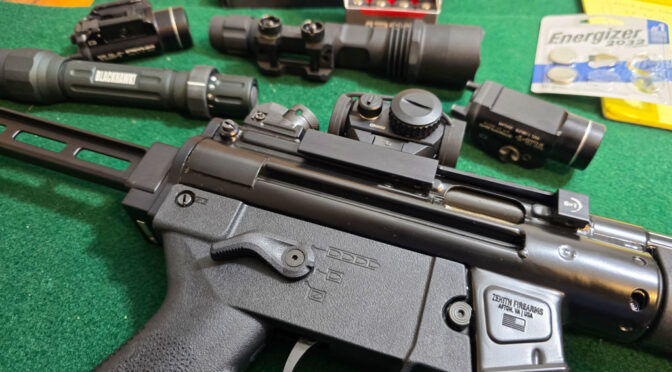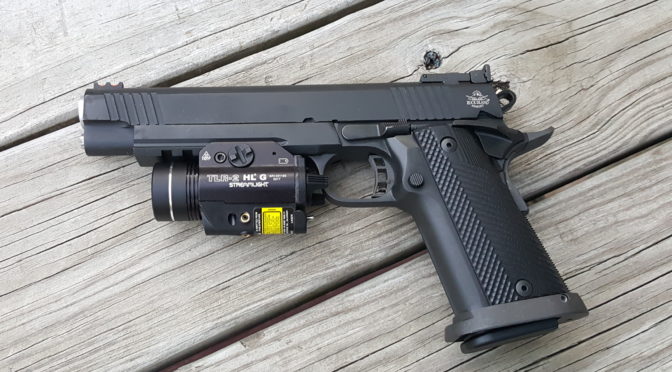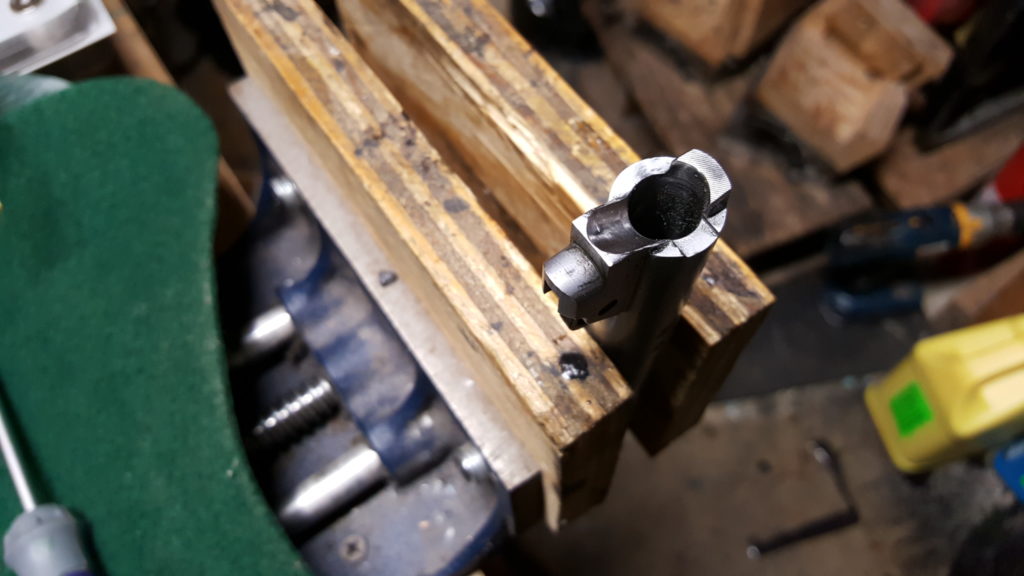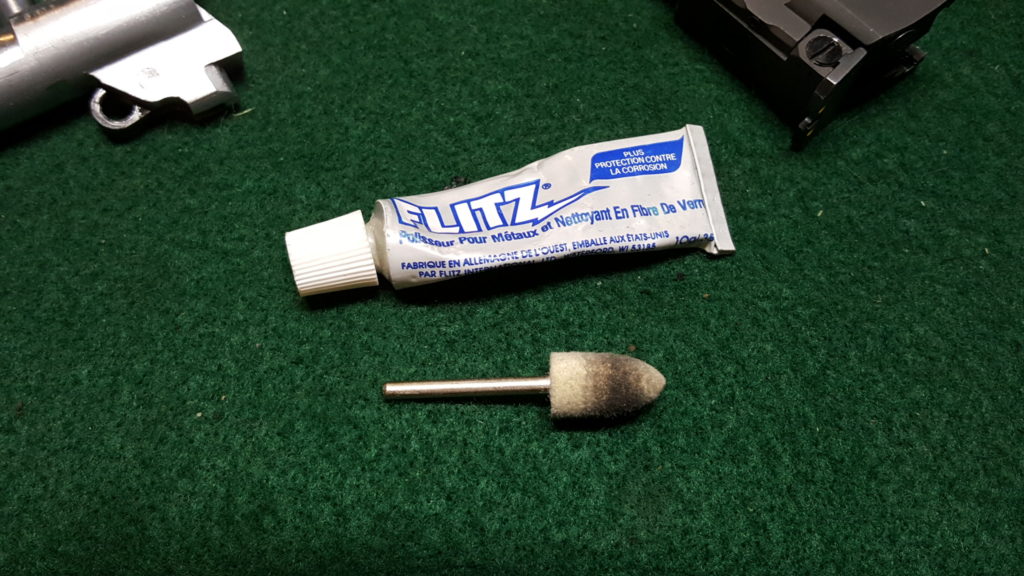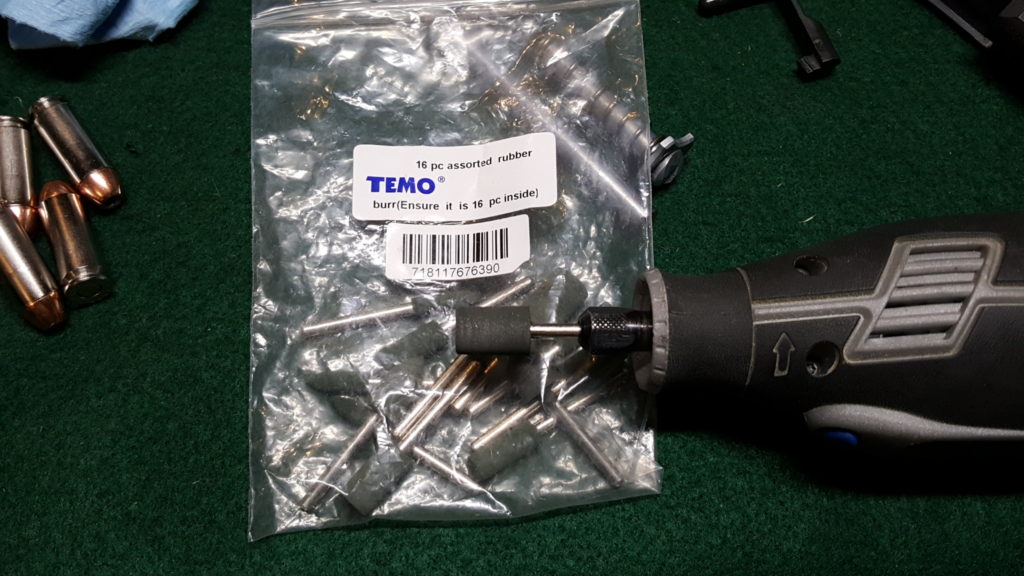I’m old enough to have grown up with iron sights. It wasn’t until I wasn’t until I was a teenager that I bought my first four power scope for my pump up Crosman airgun. In 1990, I bought my first red dot scope – a big Aimpoint thing that went on my .44 Desert Eagle. Today, 34 years later, I have all kinds of optics, lights and lasers. Do you know what most of them have in common? They all take batteries of one type of another. So, here’s a question for you – when was the last time you checked or replaced your device’s batteries?
My dad was in the 6th infantry at the end of WWII and he drilled into me the need to clean and lubricate firearms. Every time we went plinking it was followed by running patches and then lubricating the .22 rifle. Maintaining firearms was second nature but back then there were no electronic do-dads on firearms. Now, years and years later and a few range trips where optics wouldn’t work due to dead batteries, checking batteries and having spares was added to the list.
Here’s what I want to share with you – if you want to count on your electronic gadgets, you need to maintain the batteries too.
Why bother checking?
First off, batteries have a finite capacity and that as we use them, they eventually run out and need to be changed.
Second, batteries have a shelf-life. In other words, they are chemical devices and at some point, the chemicals are depleted, no reaction can occur so no power comes out. The packaging may say the lithium batteries are good for 10 years – well, that is from when they were made and not when they went in your device.
Also, just when did you buy those batteries anyways? Get older and you’ll understand that last part more. If the packaging doesn’t have a date, I write down when I bought it and guess they are about a year old. I have Surefire CR123A batteries that hit 10 years – time flies by.
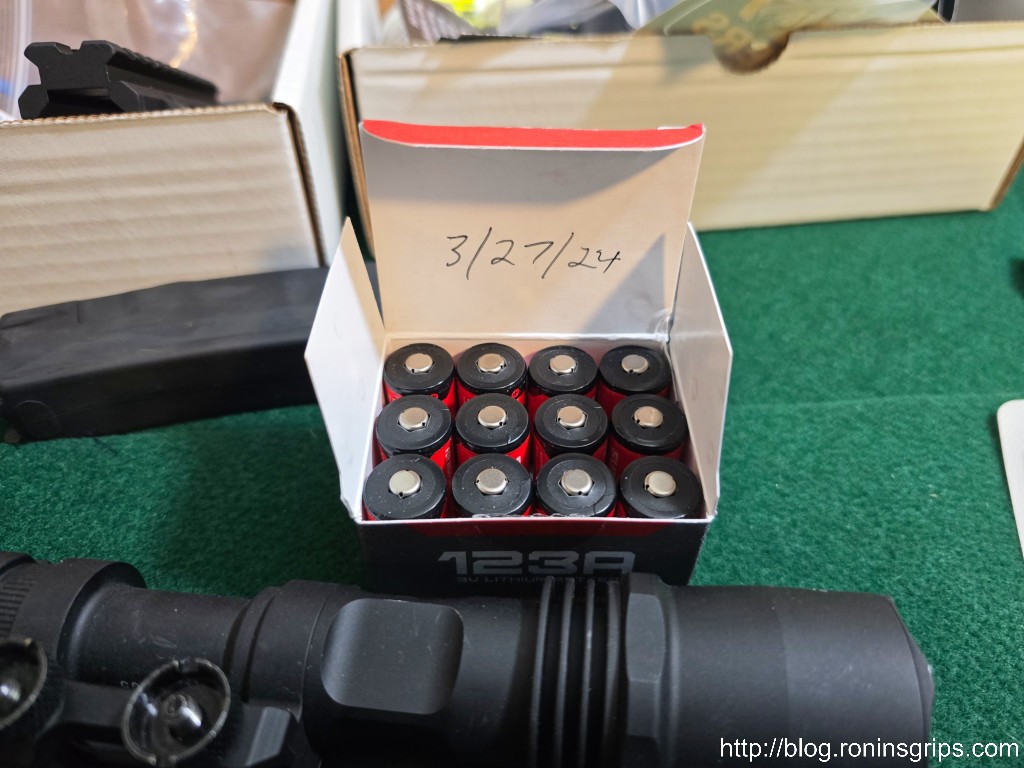
As an aside, I take comments like “Our optic’s batteries will last 10,000 hours” or some huge number with some skepticism because they are usually estimated from testing and with a number of assumptions. Your real battery life might vary. So, that cool slide mounted optic you just bought with a huge hour claim — I’d recommend you know how to change the battery and keep a spare around just in case.
Improving Device Reliability
Let me share with you a few things to increase device reliability that concerns the batteries:
1. Know how to change the battery in each device. That might sound simple but sometimes somebody else installs a battery for you on a new optic and then you don’t know what type it is or where it goes so find out and practice doing it.
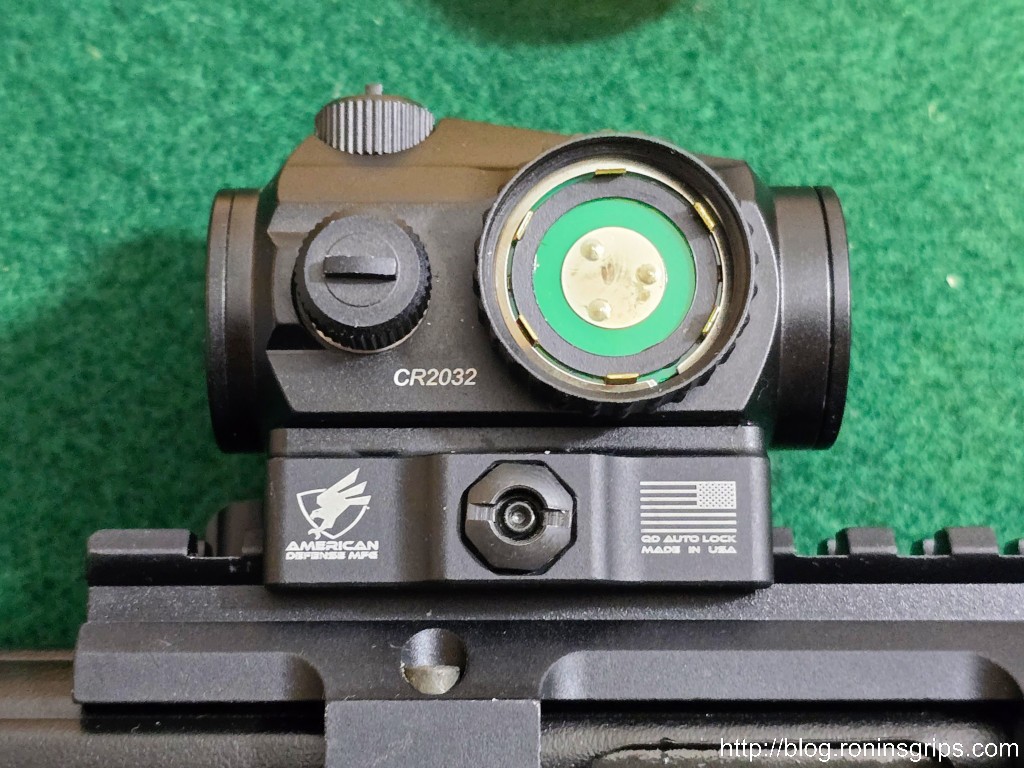
2. If you log work on your device, include batteries. I am honestly not this organized but some guys are.
3. If you have no idea how old or depleted a battery is in a device, change it. Some guys change batteries before they head to the range. I’ve talked to a few law enforcement officers that say they change the batteries in their lights before they go do something and that’s an option if you have time.
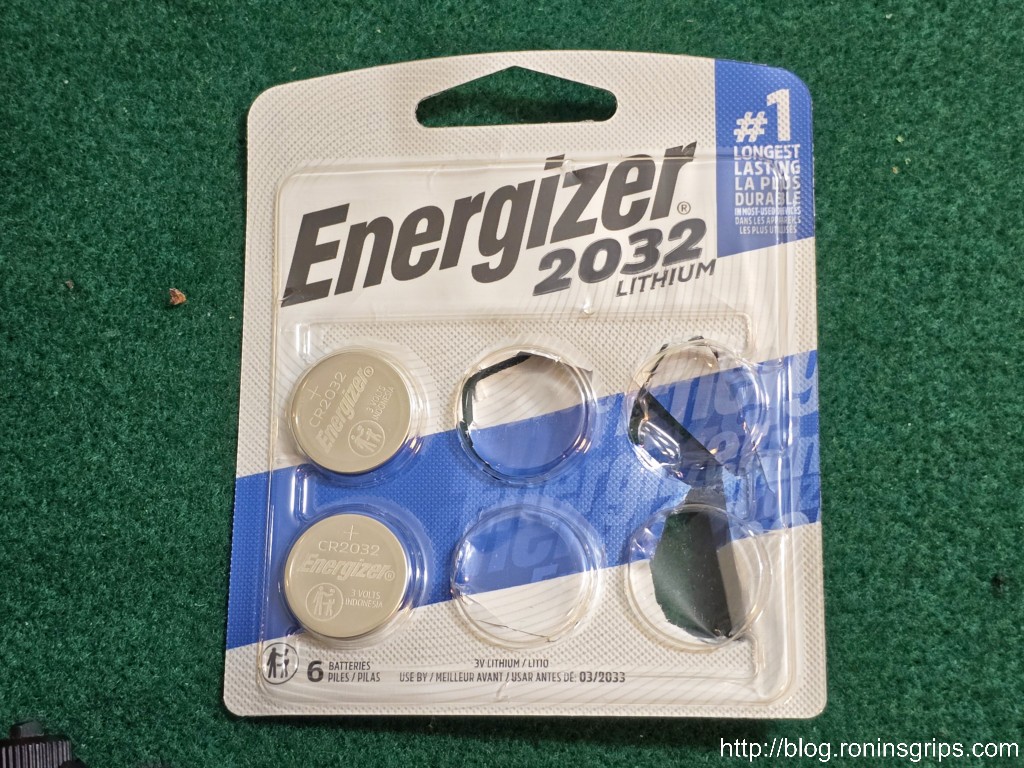
4. Test your device before you go to the range or at least every six months. Shorter if your device is mission critical. Now, just because it powers on doesn’t mean it will last – the battery might be near the end of its life but at least you have an idea. If you want to go the extra mile and have a multimeter, find out what the acceptable voltage range is for that type of battery and discard it when it nears the bottom.
5. Always keep spares – both in your house as well as your range bag. I can’t tell you how many shooting sessions were saved because I had a spare battery in my bag. On the flip side, I’ve had a few range sessions where the firearm had to go back in its case because an optic was dead.
Two days ago, while I am writing this post, I took my brother-in-law and nephew shooting the other day and the CR123A battery in my Vortex UH-1 holographic optic was dead. We were only able to shoot my 10mm Stribog because I had spare Surefire CR123A batteries in the Stribog’s carry case.
6. Buy quality batteries from a reputable seller. Did you know a lot of devices that use CR123A will not be covered if you use a no-name brand battery? Yeah – they had problems with cheap CR123As catching on fire and people wanting warranty coverage so the big device vendors expressly mention that cheap batteries will invalidate their warranties.
Also, not all batteries are created equal – some supposed alkaline or lithium batteries hold a fraction of a charge compared to name brands such as Duracell, Energizer, Panasonic and Surefire. Not to mention that cheap batteries may “pop” open and leak corrosive acids in your battery compartment. In short, don’t go cheap on the batteries for something you need to rely on.
7. Have a plan if the device stops working. This is critical – your red dot, laser or whatever stops working then what will you do? For example, practice shooting a pistol both with the device on and off. Do you have back up sights? Do you need to remove the optic to use the sights? What will you do?
Build For Reliability
Now, I need to expand a bit on that last one when it comes to optics. At this point in life, whenever possible, I want one of two things to be possible – my first choice is to co-witness the optic with the iron sights so even if the device stops working, I can immediately continue with the iron sights with no lost time.
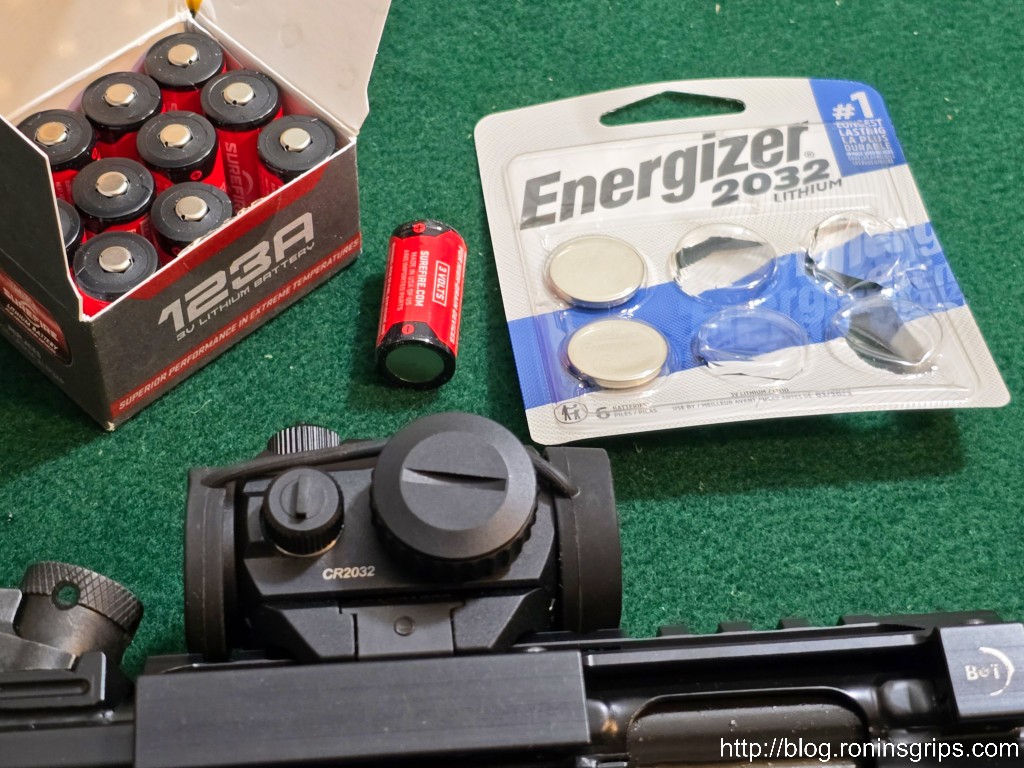
If that is not possible then I want the optic on a quick release mount that I can get off the weapon in a hurry. You’ll notice most of firearms have American Defense quick release mounts because they are quality and I can count on them. You can use whatever name brand you like but I would not recommend cheap no-name mounts because stuff bends, they don’t return to zero when remounted, etc.
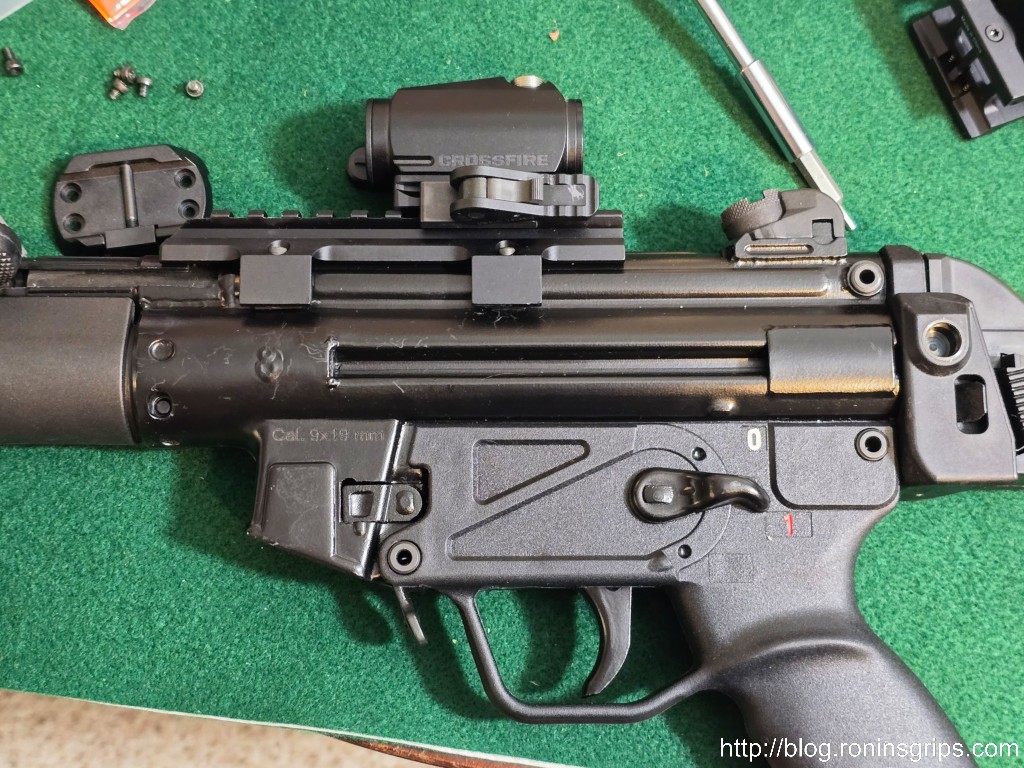
Practice For Resiliency
Resliency is the property of a material to bend and turn to its original shape. In your case, if an optic fails, how do you stay in the game?You can do all kinds of the stuff above and then life throws you a curve ball – what do you do?
Part of the answer is to mentally rehearse what you will do and then a very important point is to actually practice with the device turned off. How will you aim? How will your transition to a backup light or whatever? How do you get the optic out of the way in a hurry if necessary so you can use the backup sights that are blocked by the mount? It’s one thing to think about these things and another to do them. For example, the quick release levers for American Defense mounts have a small button that must be pressed for the levers to turn. You wouldn’t want to be fumbling around with them if you are in a rush – they move out of the way very easily with practice.
Rechargeable Batteries Introduce New Variables
“No more changing batteries” sounds great but there are still things you need to consider. If you have a device with a rechargeable battery, like a thermal or night vision optic, then remember three it takes time to charge them. To me, this is their biggest Achille’s heel – you can’t swap the batteries and go so plan accordingly. You need to also consider how long will it store a charge and how long will it run? Can you plug in a USB battery pack to extend the life or recharge it?
Even rechargeable batteries have a limited life – it may be three, five or seven years or they may tell you the number of times it can be charged and discharged but you need to have an idea.
Buying Batteries
Amazon is just about the cheapest place I have found to buy batteries. Look for name brands — I only recommend Duracell, Energizer, Panasonic and Surefire. There are dozens if not hundreds of brands out there and not all are good. Whether brand name or no-name, be sure to read reviews before you buy something from a seller other than Amazon directly:
Quick trivia for you – the “C” in CR means it is a lithium battery. The “R” means it is a round shape.
Summary
Electronics are everywhere these days and sometimes we don’t think twice about them. If you want to rely on your firearm and it has an electornic device on it, like a dot optic or light, always factor your devices’ batteries into your maintenance plans. That’s the first part and preventive maintenance certainly helps but you also need to plan and practice in advance if the optic or whatever device fails.
I hope this helps you out.
Note, I have to buy all of my parts – nothing here was paid for by sponsors, etc. I do make a small amount if you click on an ad and buy something but that is it. You’re getting my real opinion on stuff.
If you find this post useful, please share the link on Facebook, with your friends, etc. Your support is much appreciated and if you have any feedback, please email me at in**@*********ps.com. Please note that for links to other websites, we are only paid if there is an affiliate program such as Avantlink, Impact, Amazon and eBay and only if you purchase something. If you’d like to directly contribute towards our continued reporting, please visit our funding page.
